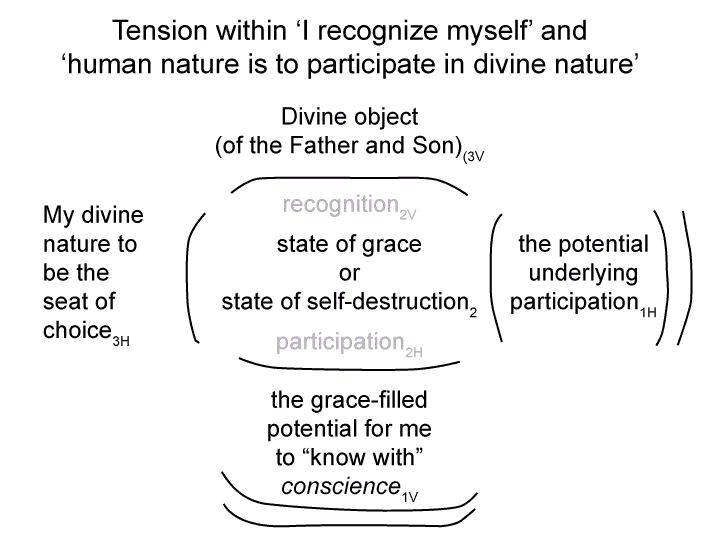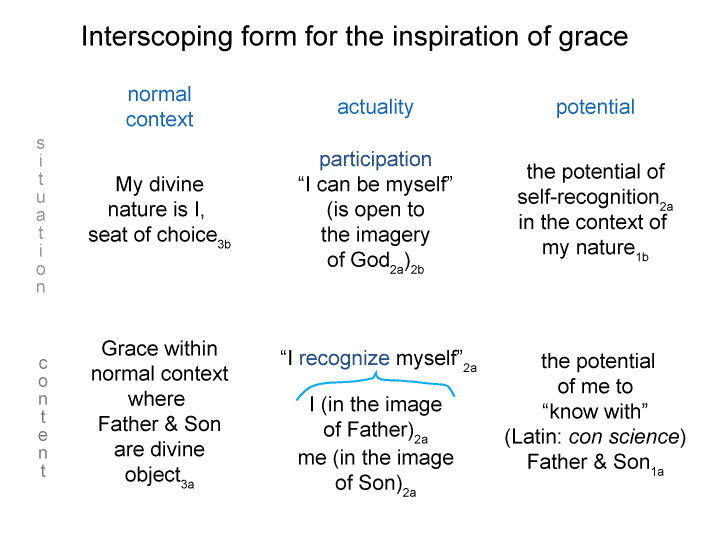Category Archives: Unveiling words
The first task or group concerns the semiotics of speech-alone talk. One of these would be about unveiling the hidden history of a word. This topic is addressed in chapters 2 and 12.
Man and Sin by Piet Schoonenberg (1964) 2.3 YB
Summary of text [comment] pages 87 and 88
[So what are survey questions actually measuring?
Something2a is the actuality that gains the subject’s attention. Yet, even this actuality is one element in a dyad.
The other element is the researcher and the conditions.
These are very difficult to assess. Consequently, the thought experiment3a treats these as constants.]
Man and Sin by Piet Schoonenberg (1964) 2.3 WS
[In the gnostic paradigm, secret knowledge may alter the fate of a person. Secret incantations permit the soul to perform the proper actions in order to return to the source.
Can I, seat of choice3V, compare to someone who holds secret knowledge?
Or does the acquisition of secret knowledge compare to a thought experiment3H?]
Man and Sin by Piet Schoonenberg (1964) 2.3 RR
Summary of text [comment] pages 83 and 84
[Obligations tend to be unavoidable.
Responsibilities tend to be character building.
Words tend to be deceptive.]
Man and Sin by Piet Schoonenberg (1964) 2.3 NC
[The technical term is ‘reciprocity’
Each of us intuitively knows that nothing is truly free. To accept a gift is to accept the responsibilities of reciprocity.
This raises a fascinating sociological question:
How does one engage in reciprocity with an institution?]
Man and Sin by Piet Schoonenberg (1964) 2.3 MV
Summary of text [comment] page 83
Schoonenberg wrote that we exercise freedom in serving either God or Satan.
[The claim, “I am not responsible.”, touches base with the modern definition of the word “freedom” as lack of obligations, especially impositions by family, tribe and religious cultural institutions.
The irony is that this assertion, rather than achieving a lack of obligations, merely transfers one’s obligations to institutions that declare themselves to be responsible.
How clever the Progressives can be.]
Man and Sin by Piet Schoonenberg (1964) 2.3 MT
[… that obligations3H(2 for the intersecting nested forms, corresponds to:
Mirror of the world3H(my heart2
In the intersection, my heart2 is the single actuality of my choice2V and ‘something’ contextualized by the mirror of the world2H.
Words3H(2H, excuses3H(2H and resentments3H(2H correspond to the latter actuality.
They still cry out, “I am not responsible.”
But how irresponsible is that?
In my heart, I know that the values that I have been choosing1V no longer represent the desires inherent in me1H.
In our heart, I know the truth that I cannot accept:
My resentments are co-opposed to bondage.]


